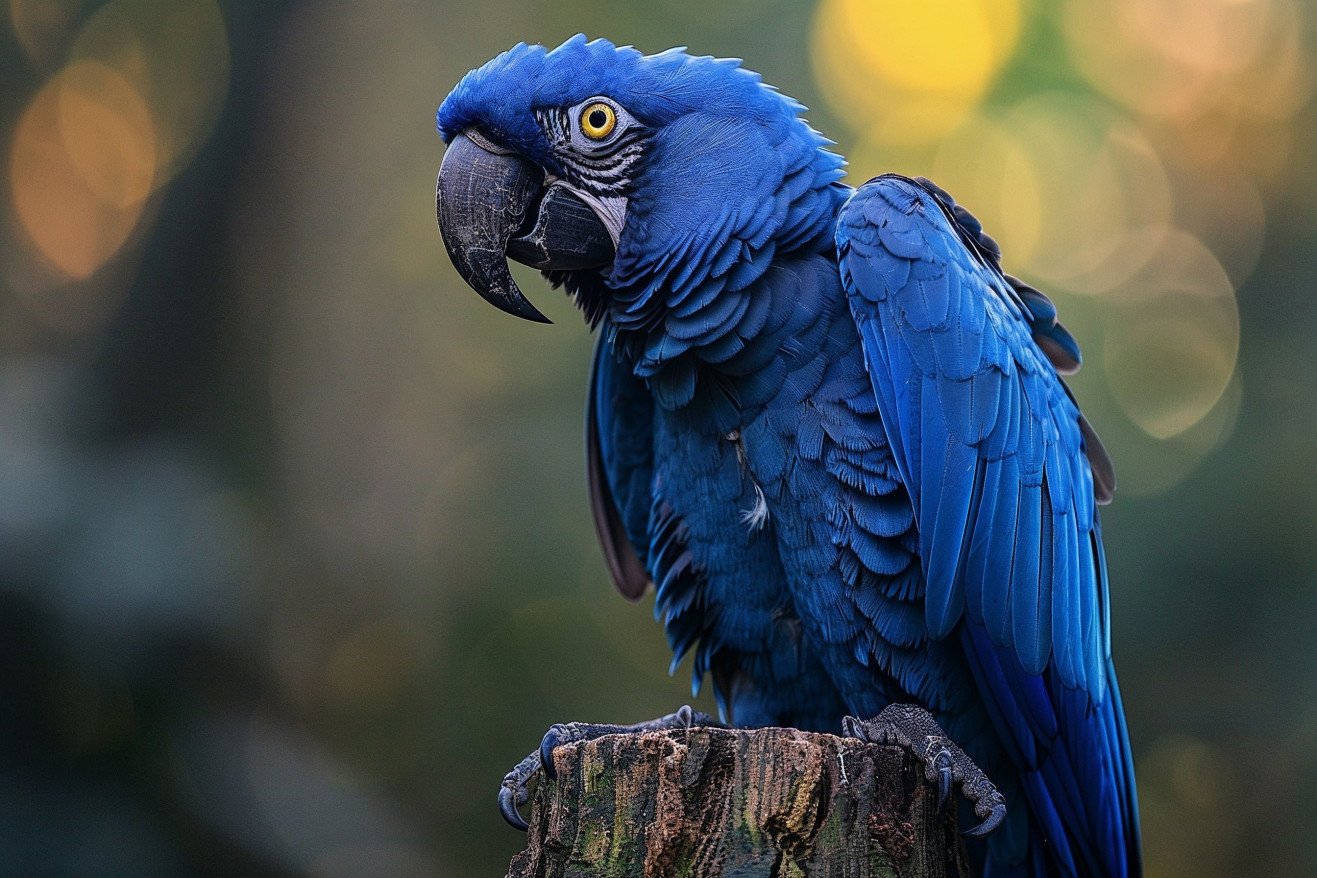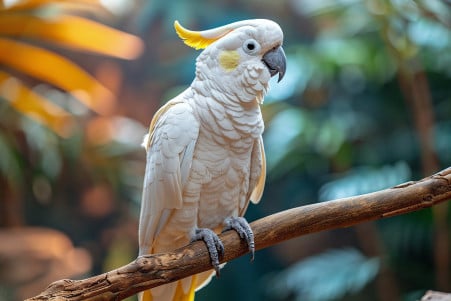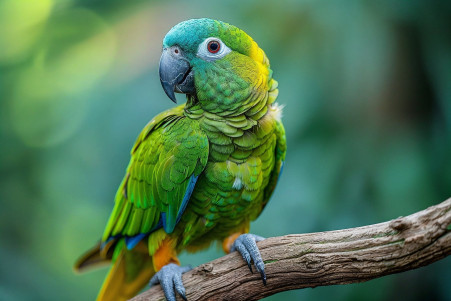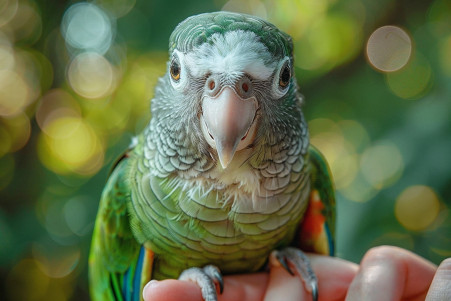Macaw Life Expectancy: How Long Do These Colorful Parrots Live?
21 May 2024 • Updated 20 May 2024

If you’re thinking about bringing a macaw into your home, you might be wondering how long you’ll have to enjoy the company of these colorful, intelligent parrots. Macaws are known for their long lifespans, and while the larger hyacinth macaw can live up to 60 years, the smaller severe macaw has an average lifespan of 30 to 35 years in captivity. With the right care, diet, and environment, you can expect to have a macaw as a pet for many years to come.
To get a complete picture of how long macaws live, we’ll look at research from avian veterinarians, zoologists, and macaw breeders to understand the most important factors that determine their life expectancy. We’ll explore the latest studies on macaw natural history, nutrition, health, and the importance of environmental enrichment in preventing obesity and psychological problems to help you better understand how to take care of your pet and help them live as long as possible.
How long do macaws live?
Species Differences: How Long Do Different Macaw Species Live?
There are differences in the lifespans of different macaw species, with larger species such as hyacinth and green-winged macaws generally living longer than smaller species. As noted by PetMD, the average lifespan of wild macaws is around 60 years, while those in captivity can live anywhere from 35 to 50 years. The blue and gold macaw, in particular, has an average lifespan of 30-35 years in the wild and up to 50 years in captivity.
The differences in macaw species' lifespans are due to a variety of factors, including size, environment, diet, and reproductive behavior. For example, the scarlet macaw has a typical average lifespan of 40-50 years in the wild, but can live up to 75 years in captivity, which is likely due to the controlled environment and specialized care it receives. Knowing these differences between species is important for macaw owners so they can adjust their care regimens and make sure they're meeting the needs of each bird to ensure the longest, healthiest life possible.
The best information about the average lifespan and care needs of different macaw species can be found in reputable sources like peer-reviewed scientific research and advice from avian veterinarians. By turning to these experts, macaw lovers can make sure they're creating the best possible environment and providing the best care to help their pets live as long as they can.
Nutrition and Diet: How to Help Your Macaw Live a Long Life
A healthy, well-rounded diet is key to a macaw's longevity, and that means feeding them a combination of formulated pellet foods along with fruits, vegetables, and nuts. VCA Animal Hospitals explains that seeds and nuts are high in fat and that if they are the only thing a macaw eats, they can lead to a diet that is low in many essential nutrients, which can ultimately lead to poor health and a shorter life span.
In addition, the specific dietary needs of macaws change based on the bird's age, activity level, and whether or not they are breeding, so it's important to make sure that the diet is adjusted to meet the bird's specific needs. The Pender Veterinary Centre explains that there are times when a macaw may have special dietary needs, such as when they are laying eggs and need more calcium. It can take time and the help of an avian veterinarian to adjust a macaw's diet, especially if they have special dietary needs.
In addition to making sure that a macaw is eating a balanced diet, it's also important to make sure that they are drinking enough water and that they are not eating any toxic foods, such as avocado and chocolate. By making sure that a macaw is eating a balanced diet that is tailored to their specific needs, macaw owners can make sure that they are doing everything they can to help their pet live a long and healthy life.
Environmental Enrichment: Supporting Physical and Mental Health
Given their intelligence and activity levels, macaws need a rich environment to stay healthy and avoid obesity, feather-plucking, and other psychological problems. The Pender Veterinary Centre notes that macaw enrichment requires large, roomy cages or aviaries with lots of perches, toys, and foraging opportunities. In addition, macaws need regular time outside of their cages to play, exercise, explore, and interact with their human caregivers.
In addition to environmental enrichment, a varied diet, training, and socialization with other birds or people can enrich a macaw's life. As Phys.org points out, this type of environmental enrichment supports both physical and mental health, enabling macaws to live longer by preventing stress-related health issues. By ensuring that a macaw's living environment and daily routine meet their needs for mental stimulation and physical activity, owners can help their pets live as long as possible.
Veterinary Care and Health Monitoring: Ensuring Macaw Longevity
Regular veterinary care and wellness exams are important for catching and treating potential health problems in macaws. Per PetMD, some health issues that macaws are prone to include malnutrition, obesity, feather-plucking, and reproductive problems like egg binding. Regular wing and nail trims and beak care are also important parts of macaw care that can help ensure longevity.
Watching for symptoms of illness, like changes in appetite, behavior, or droppings, can help ensure that any health problems are caught early and treated effectively. The Pender Veterinary Centre explains that avian vets can also help make sure that macaws are housed, fed, and enriched in ways that will help them live long and healthy lives. With regular monitoring and care from a vet, macaw owners can help make sure that their pets live as long as possible.
Conservation Efforts: Saving Macaw Species for Future Generations
Due to habitat loss, deforestation, and illegal poaching for the pet trade, many macaw species are currently endangered or threatened. WWF suggests that the bright colors and patterns of macaw feathers have made them a popular target in the illegal pet trade, which has led to the decimation of many wild exotic bird species. WWF is working to end the importation of wild birds into the United States and promote captive breeding as an alternative to illegal capture.
Conservation work is currently aimed at protecting the remaining wild populations, restoring their habitats, and stopping illegal trade. The American Bird Conservancy explains that the Spix's Macaw, which was once declared Extinct in the Wild, was ultimately wiped out due to ongoing habitat loss and illegal poaching. Efforts such as nest monitoring, the installation of artificial nest boxes, and public awareness campaigns are all working to increase macaw populations in the wild, as demonstrated by the Macaw Recovery Network's work with the Scarlet and Great Green Macaws.
Captive breeding programs and reintroduction projects are also essential to preventing extinction and repopulating the wild. BirdLife International explains that the conservation group Asociación Armonía has successfully increased the wild population of the Critically Endangered Blue-throated Macaw through these methods. By supporting conservation groups and promoting responsible pet ownership, we can help ensure the long-term survival of these incredible birds.
By learning about the challenges that macaw species face and the work being done to save them, we can help ensure that these colorful parrots will be around for future generations to appreciate. This brings us to the next topic, which is the exceptional lifespan of macaws compared to other parrot species.
Macaw Longevity: Longer Than Other Parrots
Macaws are some of the longest-living parrots, with some species like the scarlet macaw living up to 30 years on average. The study published in Proceedings of the Royal Society B: Biological Sciences found that parrots' brain size relative to their body size is positively correlated with their lifespan, which may be because it helps them solve problems more effectively.
This longer lifespan compared to smaller parrots like budgies and cockatiels is likely due to their larger size and intelligence. PetMD explains that in general, the smaller the bird, the shorter its lifespan, and macaws are much larger than the other parrots, which helps them live longer.
By offering the right care, diet, and mental stimulation, captive macaws can live to their full potential, which is often longer than their wild relatives. As noted by Phys.org, this kind of care and environment helps macaws stay both physically and mentally healthy, which is why they live so long. Knowing why macaws live so long can help people take care of these long-lived, intelligent pets in the best way possible.
Conclusion: Enjoying the Company of These Long-Lived Birds
Macaws are truly special birds that can potentially be a lifelong companion if they are properly cared for. According to Amazon Aid, in the wild, macaws can live for 40-50 years, and up to 80 years in captivity. Unfortunately, 16 of the 17 macaw species are either threatened or endangered, and some are already extinct due to deforestation and illegal pet trade.
The Mongabay article explains how the hyacinth macaw, the largest parrot in the world, has been pushed back to endangered status due to habitat loss, fires, and climate change. It’s important to continue to work to protect these amazing birds and their environments.
Knowing the factors that affect macaw lifespan, including diet, enrichment, veterinary care, and conservation, is important. By making sure that their care is tailored to their species and individual needs, macaw owners can help ensure that their birds live as long as possible. Meanwhile, supporting conservation and responsible pet ownership can help ensure that these intelligent, colorful parrots will be around for generations to come.
Because of their long lifespan and unique personalities, macaws can be a wonderful lifelong pet for those who are willing to make the commitment to care for them.


